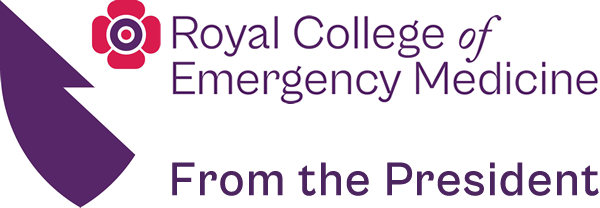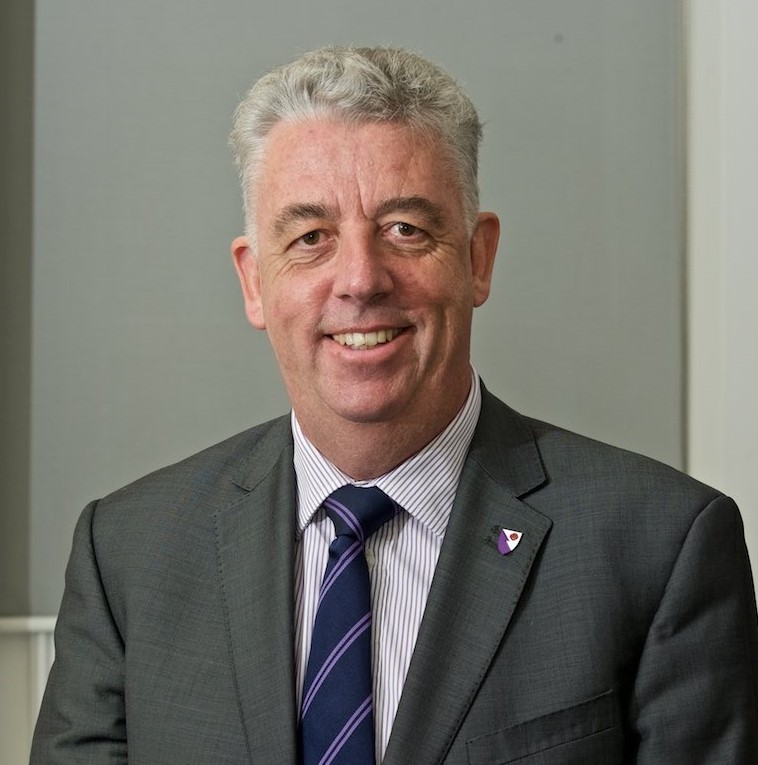As Monty Python noted in the ‘Spanish Inquisition’ sketch, ‘No one expects the unexpected’! And so I find myself President of the College! In the regular slot afforded to the president in this supplement, now as author rather than reader, it is with some apprehension that I follow my predecessors in their role as ‘leader writer’
I am sure that many of you will have scarcely heard of me and so at the risk of being too autobiographical I will summarise my career to date. Qualified Charing Cross and Westminster 1986, EM training in Taunton, Auckland, Portsmouth, Plymouth and Adelaide. Appointed to Consultant post 1999. My department is a ‘typical DGH’ we see 56,000 new attendances per year.I have been Clinical Lead/ TPD/ Head of School and for the last 3 years College Registrar.
Enough of me – what about us?
Well we all know that our problem is the challenge of recruitment and retention and it is an existential crisis. Without a rapid reversal in our workforce fortunes Emergency Departments will become increasingly bereft of senior EM doctors. This will benefit neither patients nor acute hospitals as it is senior EM doctors that provide efficient and effective frontline care. Without their input morbidity and mortality will rise, admission rates will rise and the crisis will move beyond EM to undermine all Acute Trusts.
The two key bodies tasked with resolving this issue are HEE who are mandated to restore recruitment rates into EM and the Keogh review of Urgent and Emergency Care which is tasked with describing how and where Emergency and Urgent care should be delivered. Both are working to timelines of months rather than years and the College is a key stakeholder in their deliberations. Anyone who saw Mike Clancy’s presentation to the Commons Health Select Committee can be in no doubt of the forcefulness with which we have pressed this issue.
The College believes that the disparity of work/life balance when comparing EM to most other specialties has become too great and is the biggest single barrier to workforce expansion. We have, and will be meeting again with the BMA to press the case that the proposals to renegotiate both the Consultant and Junior Doctors contract must fully recognise and compensate for workload, responsibility and work intensity and in particular better recognise the burden of substantial Out of Hours work. Rewarding a standard 40 hour week (Monday to Friday 9-5) in the same way as 30 hours worked in the evenings, nights and weekends may have been an unintended consequence of the last contract but such iniquity cannot continue. The BMA must understand that as a membership organisation it must represent EM as well as its traditional cadres.
The College has been pressed to offer its opinion and guidance in respect of a variety of reconfiguration schemes. It is our view that we are neither commissioners nor service providers and ultimately such schemes are the responsibility of these stakeholders. That said we are charged with ‘promoting excellence in Emergency Care’ and we will continue to make comment and representation wherever and whenever we are of the opinion that such proposals are a risk to patient outcomes. Key issues are the services available behind an ED, the distance/time equation and the concept of ‘optimum size’
Mindful of the lack of senior EM doctors I have also spent some time canvassing the issue of ‘Core EM’. There has been a good deal of feedback on this issue with the vast majority endorsing the ‘traditional’ workstreams of the ED; including ‘Resus’, ‘Majors’ and ”Minors’. My own view is that we need to change the name of ‘Minors’ as it masks the fact that although these patients self-present, they not uncommonly have significant illness and injury, and perhaps more importantly it leads to the erroneous perception that managing such patients can be done by anyone/with little training/or inappropriately quickly. Proof of this is the fact that in most departments up to a third of admitted patients are ‘self presenters’.
By the time you read this the summer will be on the wane but the College will be waxing – we will be attending all 3 major party conferences to keep EM at the top of the health agenda. The Autumn conference at Twickenham will be soon upon us (and is an ideal opportunity to gratuitously mention the success of the Lions) and I will be attending meetings at a country near you (Wales, Scotland, the Republic of Ireland, and England)
I see my key role as ensuring the work of the College is relevant to all its members and fellows and invite any and all to let me know of both our failures and successes. Having started with a quote from Monty Python and finished with a paraphrase of Kipling, I trust you now know me a little better.
Dr Cliff Mann FCEM FRCP
President
The College of Emergency Medicine
@CEMPresident


